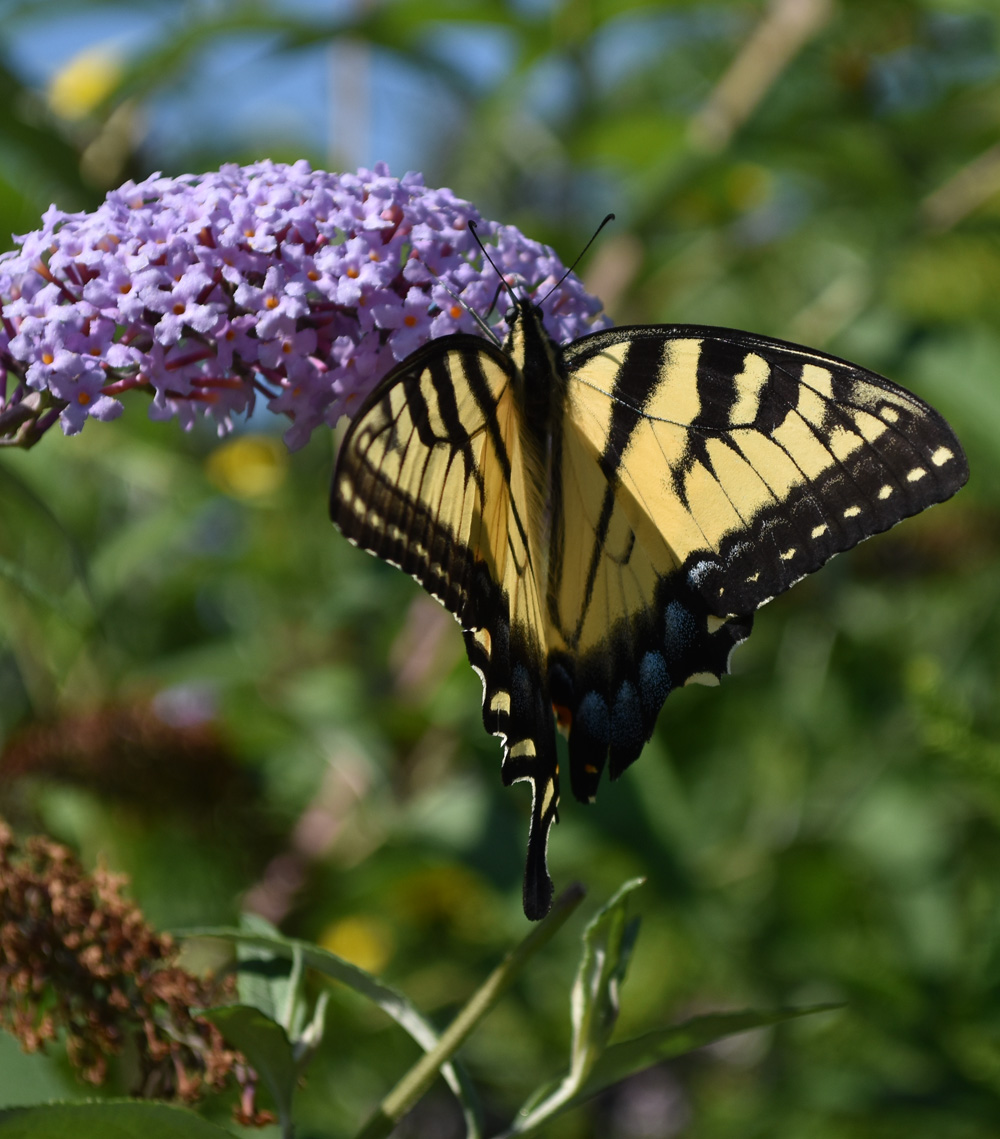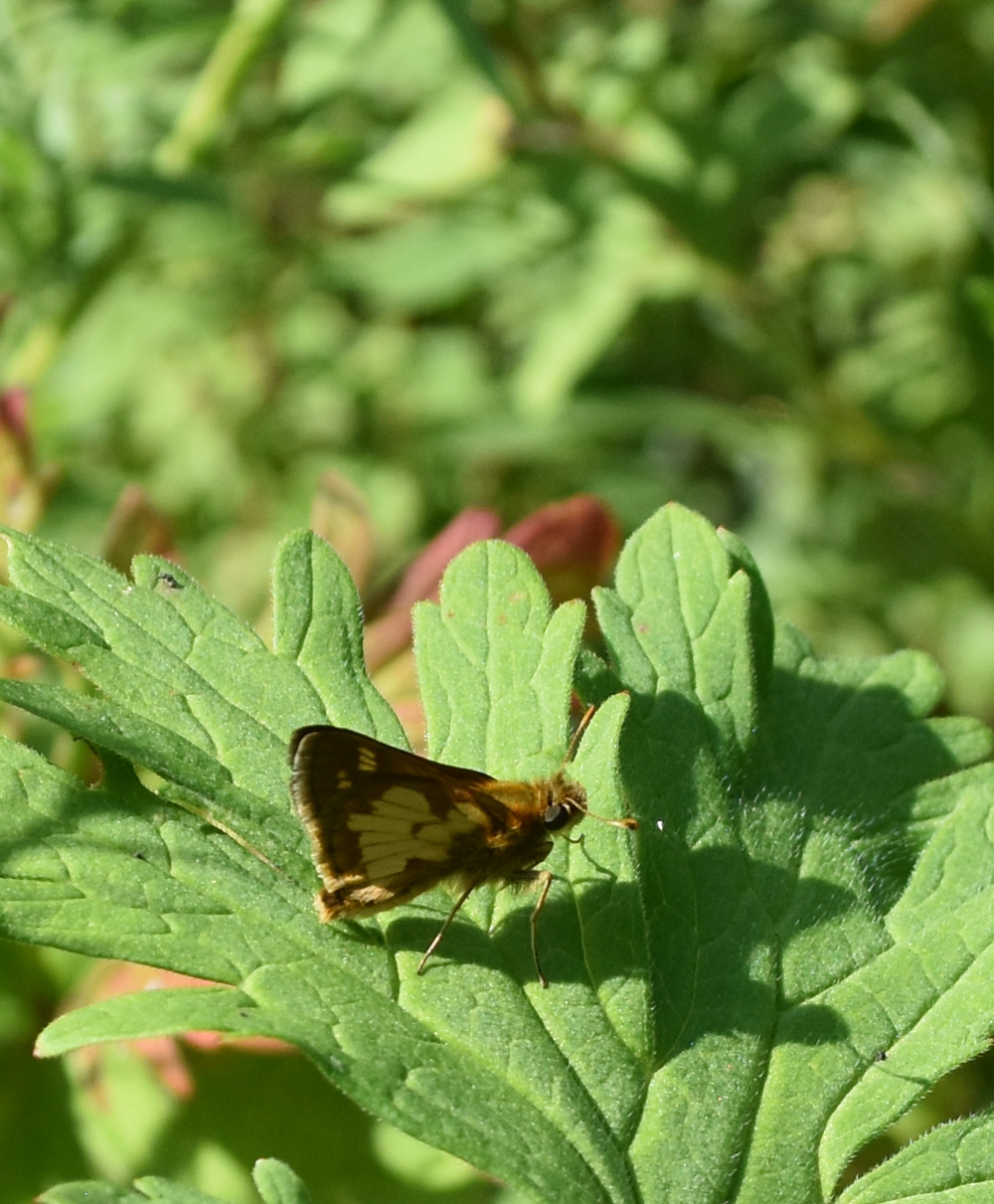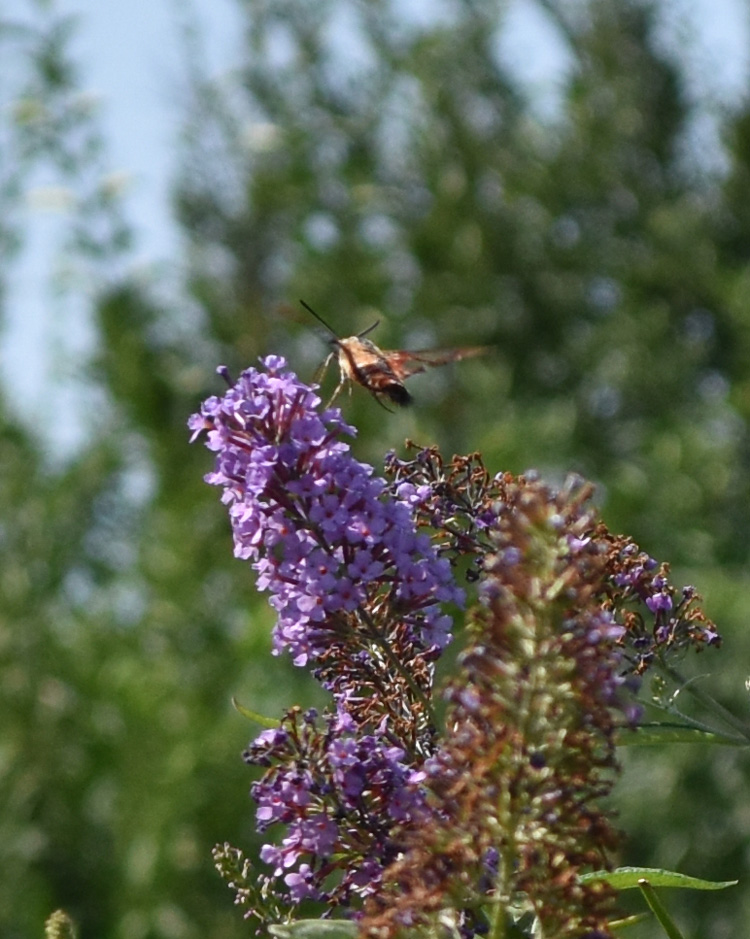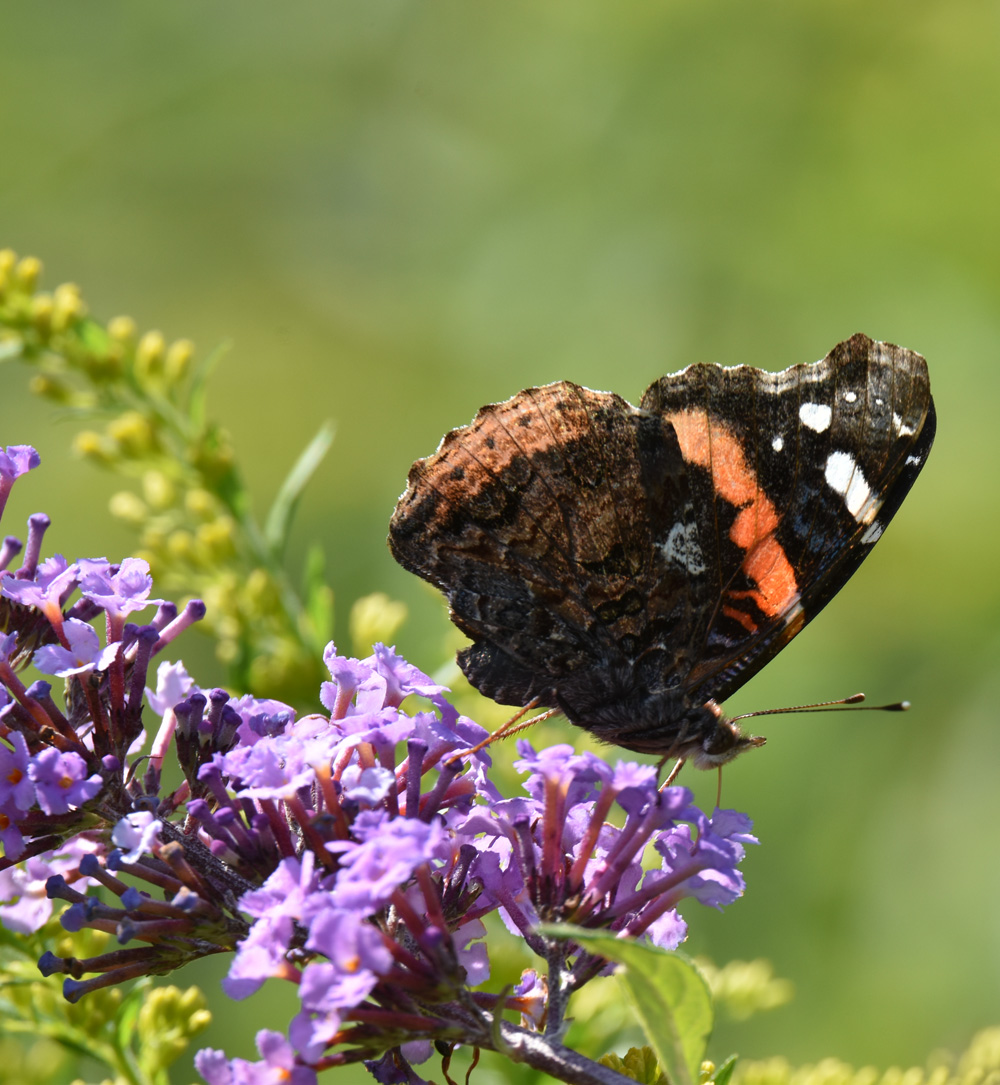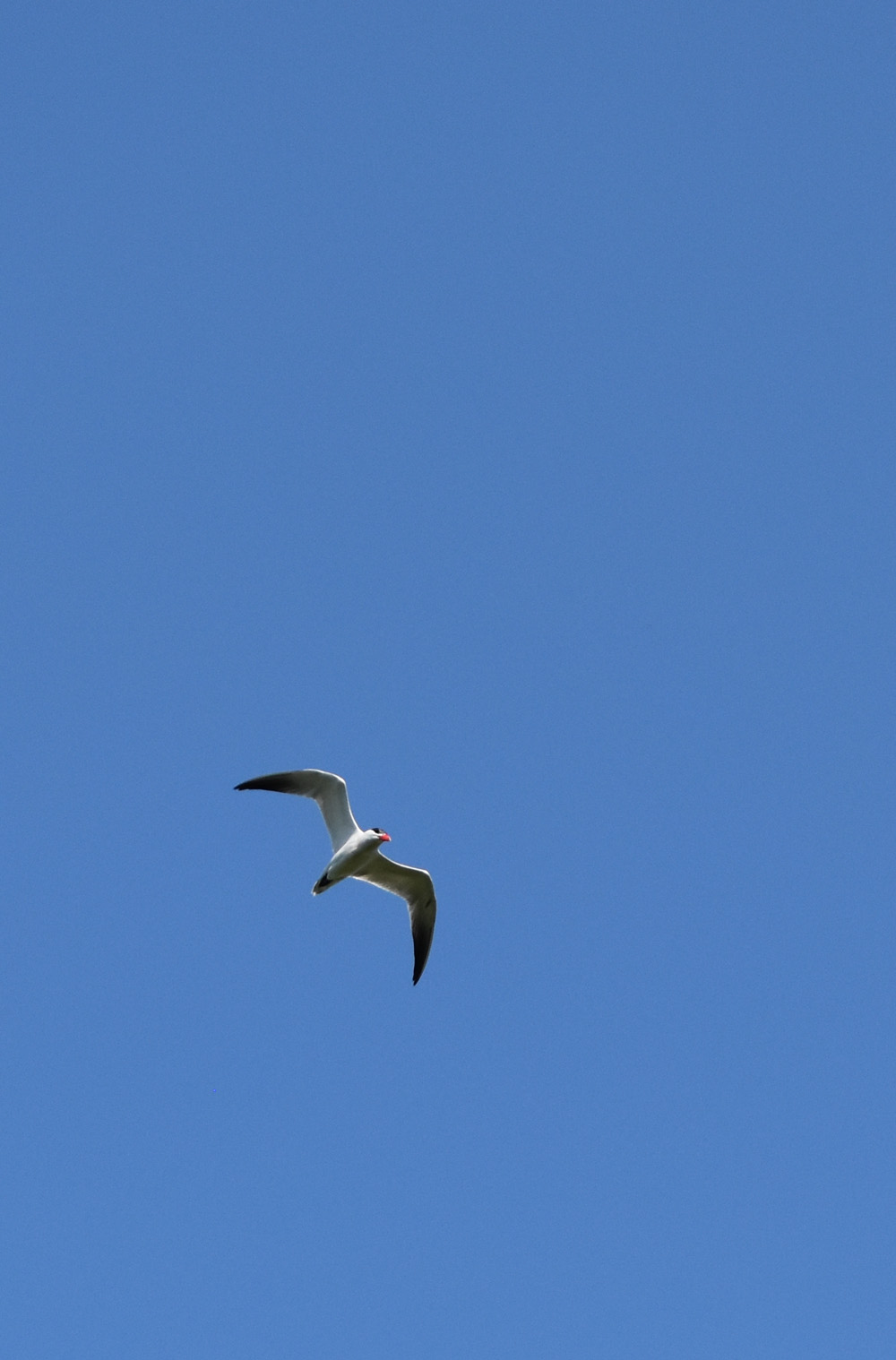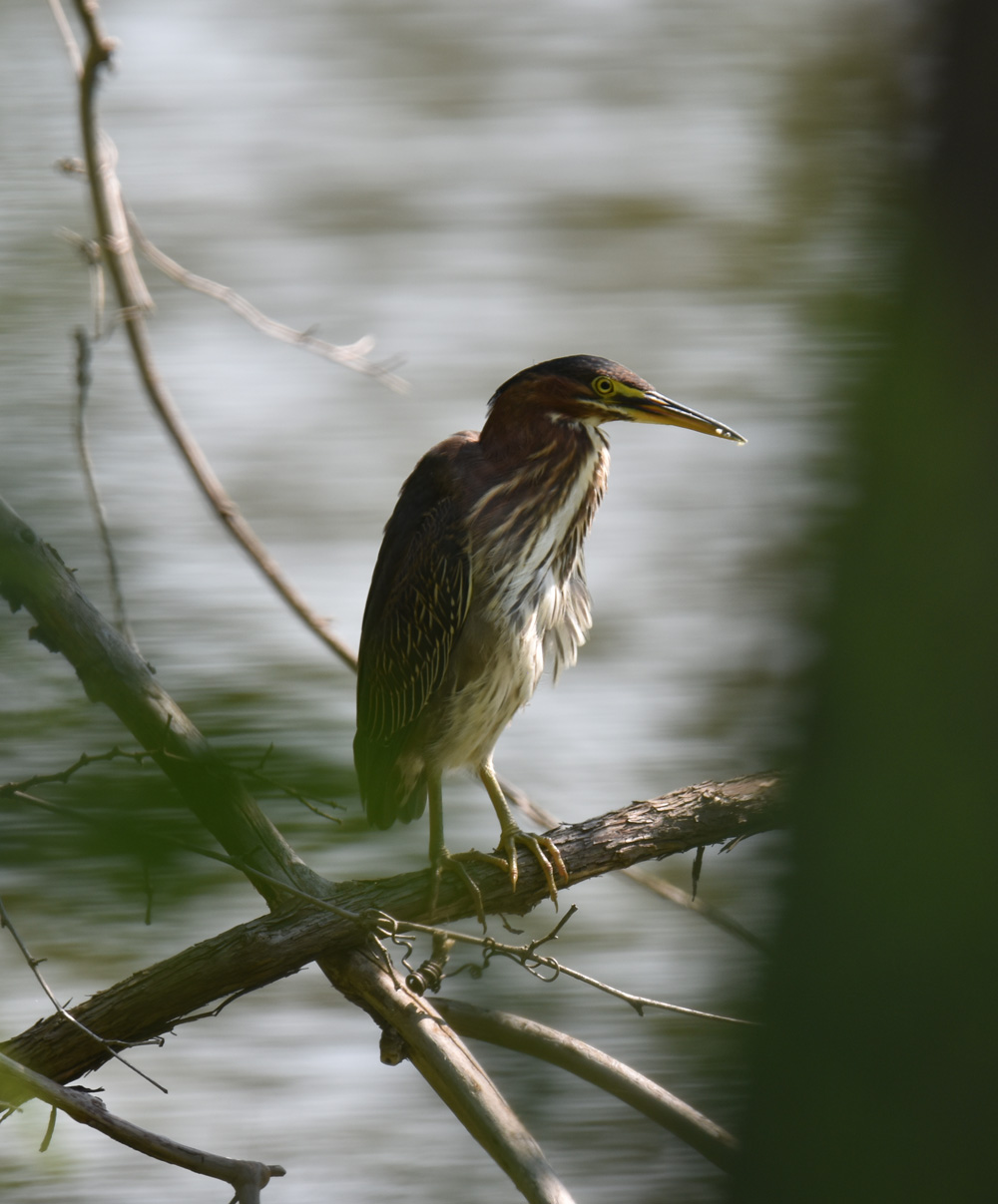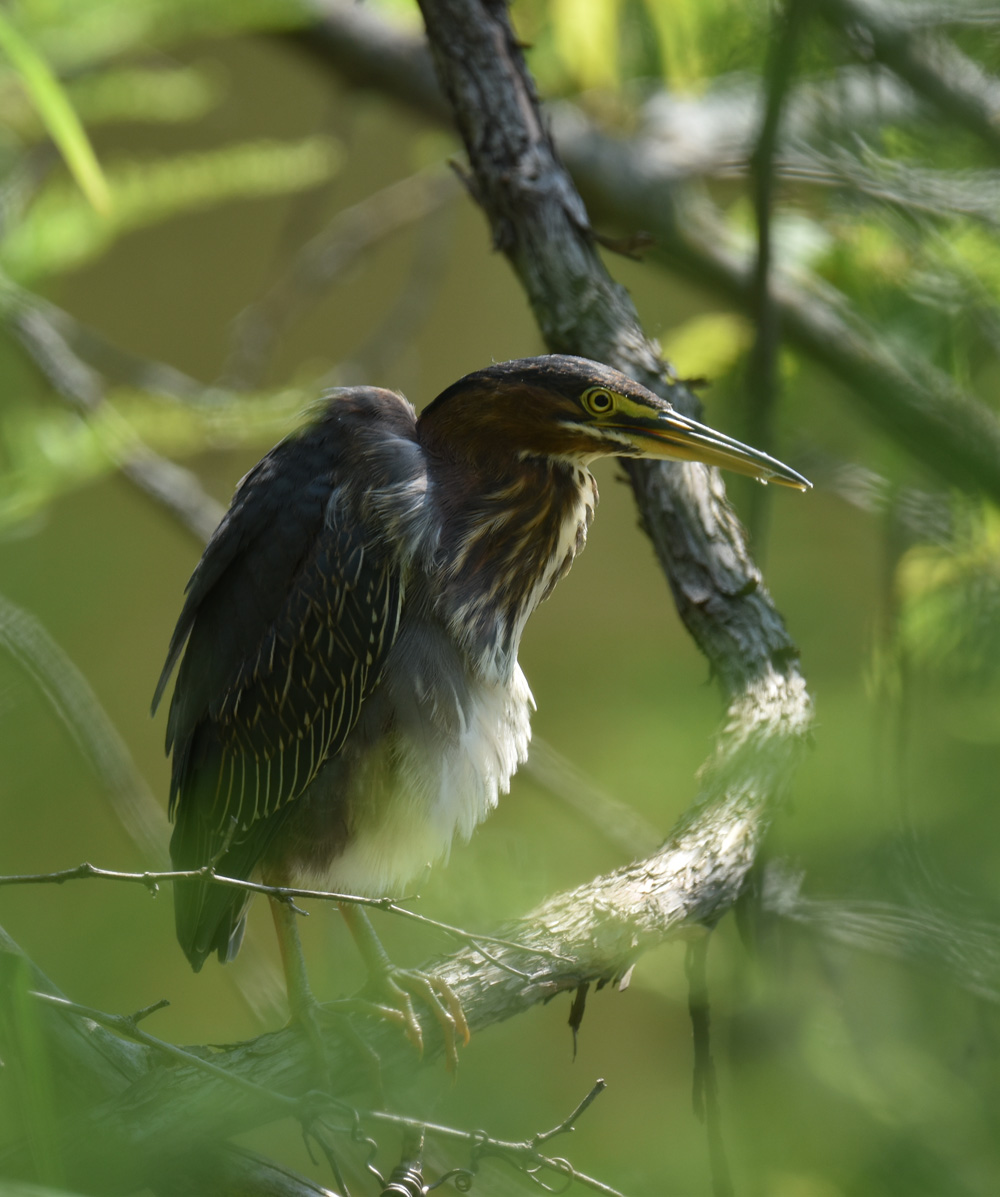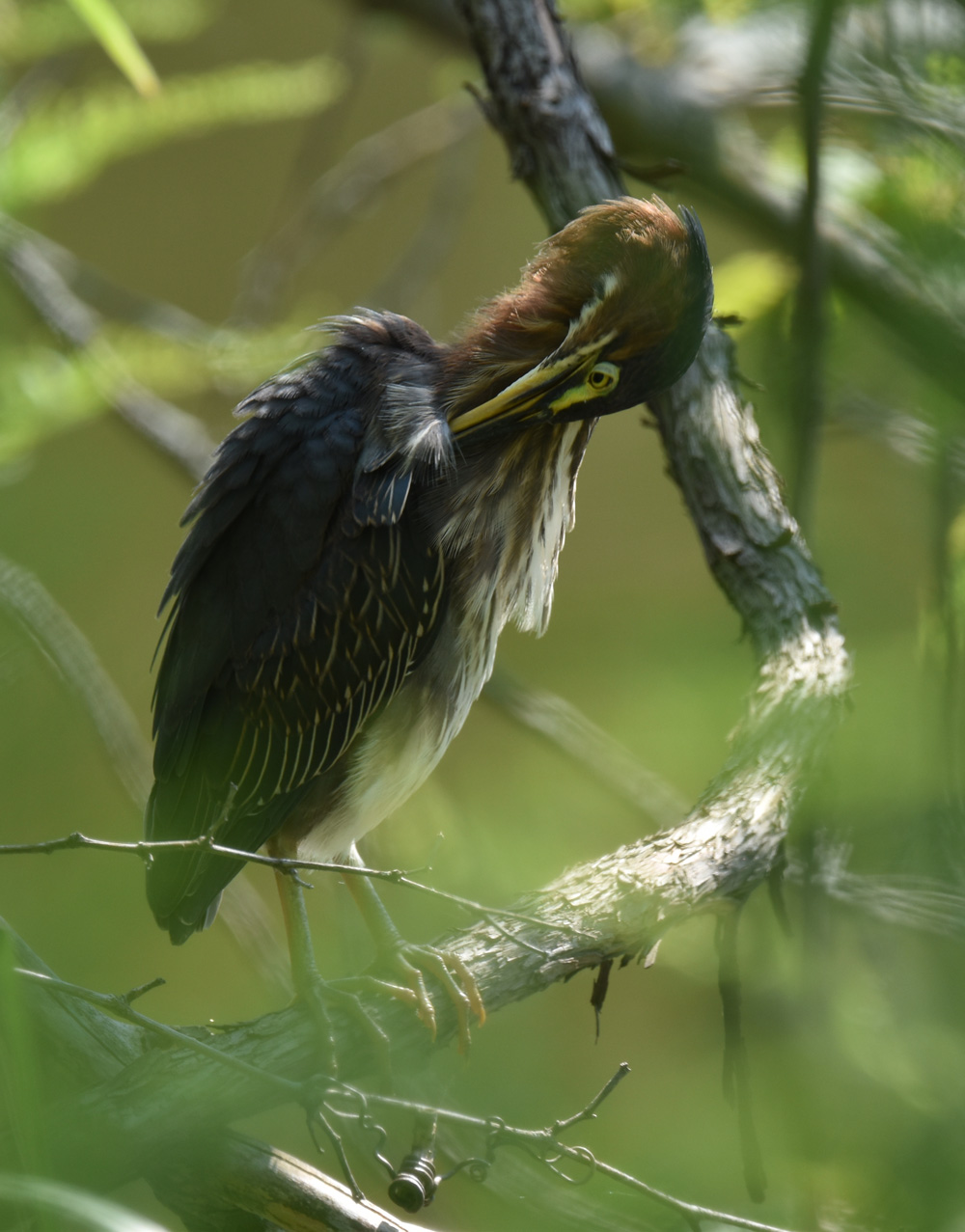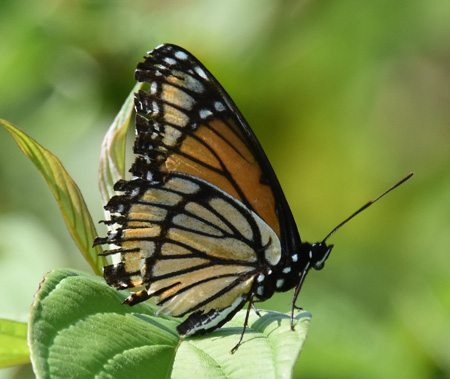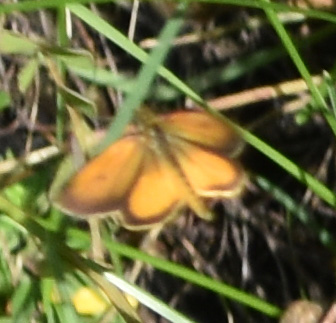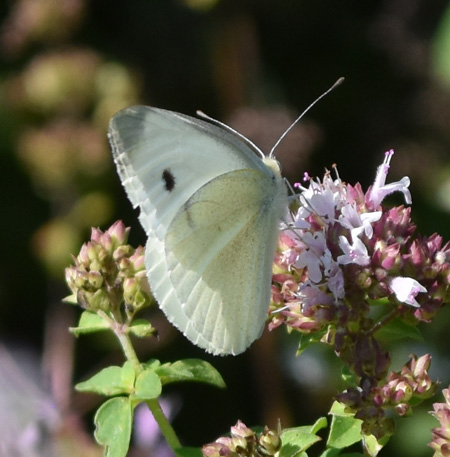I’m writing this up in January 2018 while the snow lightly sifts down and the temperature drifts down too. While I like seeing the winter birds and even insects, I found myself looking at some photos from August and feeling a little wistful to feel the heat and baking sun again. So here’s some of what I saw at the Desjardins Canal in Dundas at the Urquhart Butterfly Garden in late August 2017.
Butterflies (and Moths!) Abound at the Urquhart Garden in August
This Tiger Swallowtail enjoyed visiting the Butterfly Bush flowers for several minutes. A worn Giant Swallowtail was also in the garden.
This Peck’s Skipper was more interested in finding a partner than in finding a flower. It patrolled and defended its spot in the sun enthusiastically. If you look at the big blob of lighter yellow on the wing, you may notice it looks a tiny bit like a capital letter H. That’s one of the field marks I look for on these small active butterflies but I still find a few photos of the top and underside of the wings can make id much easier later at home.
I never can decide whether to walk around the garden with my close-up lens on the camera or my telephoto. This time I had on the closeup lens, which is why 3 or 4 metres (yards) away I saw a Clearwing Moth photogenically visiting the purple Butterfly Bush blossoms.
Of course by the time I changed lenses it had moved off into some other hidden part of the garden. This may be a Hummingbird or a Snowberry Clearwing Moth. I would not like to decide which from this photo. Clearwing Moths look like small hummingbirds when they visit flowers. Their wings beat in the same blurred bursts and they hover and dart like their larger Ruby-Throated competitors.
This Red Admiral’s stripe glowed tiger bright as it stood with the sun shining behind it.
Birds Also Bring Beauty to the Urquhart Gardens in August
I’d visited the gardens hoping to see some unusual (for me) butterlies. Maybe a Fiery Skipper or a Common Buckeye. I didn’t encounter any on this particular August afternoon, but I did find some birds well worth seeing.
The garden is adjacent to the dead end of the Desjardins Canal. It must be fairly good fish habitat as every time I’ve visited I’ve seen fish-fans flying over it or perched along the banks.
This Tern was patrolling against an azure sky.
My best find this trip was a bird perched beside the Canal visible only through a small gap between the goldenrod blossoms and the branches of a dead Ash tree.
It’s a young Green Heron not an adult. (I have yet to see an adult when I have a camera with me.) It had decided to take a break to preen and had found a convenient branch over the canal which was quite hidden from view of most passersby.
I took my time and managed to get a better angle with my telephoto lens without leaving the gravel footpath. It was challenging but that’s what makes this kind of photography fun!
Most of the time it was preening with its neck contorted into odd shapes as it tried to get its long bill into the right spot.
Other birds seen in the park included American Goldfinches and Cedar Waxwings both more interested in the seeds and fruit than in fish, and Double-crested Cormorants diving in the canal.
Why Is the Garden Named Urquhart?
There are some great signs in the park with good photos of the butterflies that visit and explanations about how common or rare they are. There is also a sign explaining the garden is named after Frederick Urquhart who pioneered the discovery of where Monarch butterflies spend their winters. In 1937 he started his attempts at following the butterflies by marking individuals.
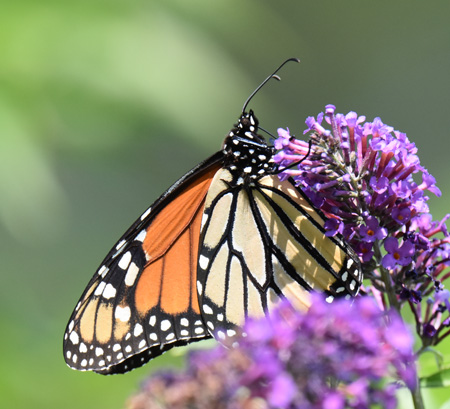
This Monarch isn’t tagged…yet.
Over the years, the signage says, they discovered that
- not all Monarchs migrate, that
- they do not fly at night, that
- they do not fly over open water, and that
- they can fly up to 130 km a day.
And of course eventually the winter roosting sites in Mexico were identified.
This Viceroy is unlikely to ever be tagged!
This Skipper has me puzzled. I’m not actually sure what type it is!
This Cabbage White was much easier to identify once it landed. It actually looked quite different for a few minutes while in flight.
I hope I’ll get back to this garden again this spring. For now, it’s dozing under a dusting of new dry snow. No doubt so are some of the butterflies and moths that will appear there in the spring or summer sun are also slumbering as caterpillars or chrysalids.
Related Reading
Join In
Have you ever tagged a Monarch or wondered where they go? Please share your summer butterfly musings with a comment.

